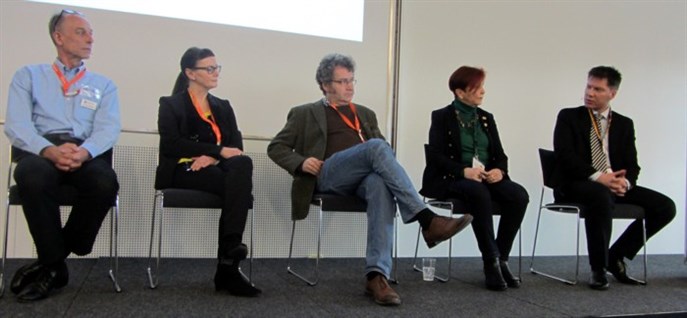Bed bugs and, in particular, the extent to which this old pest has re-invaded Germany, together with some of the options pest professionals have to deal with them were the main focus for the seminar programme at Pest-Protect in Stuttgart, Germany on 2 and 3 March 2016.
It was interesting to hear comments from some of the delegates that much of Germany is in denial when it comes to bed bugs. Austria and Switzerland might have a problem but those bed bugs know not to try to cross the border into Germany!
| These comments, of course, are just opinions and we made no attempt to conduct a proper survey of views. They were reinforced however by the fact that, at least one presenter, felt the need to explain that bed bugs are not only associated with poor quality housing, hostels, backpackers and refugee centres, but can also turn up in swanky five star hotels. This suggested that at least some German pest professionals are not as well versed as they might be when it comes to Cimex lectularius.
The panel discussion on the afternoon of 3 March threw further light on the situation. Experts and delegates alike bemoaned the fact that there was no centralised gathering of data on the incidence of bed bugs and so no national picture of the extent of the problem.
An increasing problem? A pest controller from Berlin agreed that bed bugs were increasing. He commented that 20 years ago there were maybe two cases of bed bugs a year, ten years ago around one a month, but that now bed bugs are an everyday topic in his business. Dr Eric Schmolz from UBA (the Federal Environment Ministry) pointed out however that there was little prospect of official data being collected saying: “There is no legal provision to collect data on mosquitoes and they carry diseases, so what chance for bed bugs!” Several delegates talked about the ways in which bed bugs are being transported into Germany through increased international travel, more backpackers and more recently the refugee crisis. Familiar territory Other topics raised included the need for client education, particularly on how long it can take to control bed bugs, the lack of knowledge about bed bugs amongst health professionals and the fact that there is no one authority in Germany that is prepared to take ownership of public health pest control matters. There was broad agreement that bed bug treatments are a challenge and that often a combination of approaches are needed. Chemicals must be applied correctly, freezing and thermal treatments may be needed although these are more expensive and therefore not always an option. Customers too need to do their bit, for example, some items of furniture etc may have to be thrown away. No resistance |




